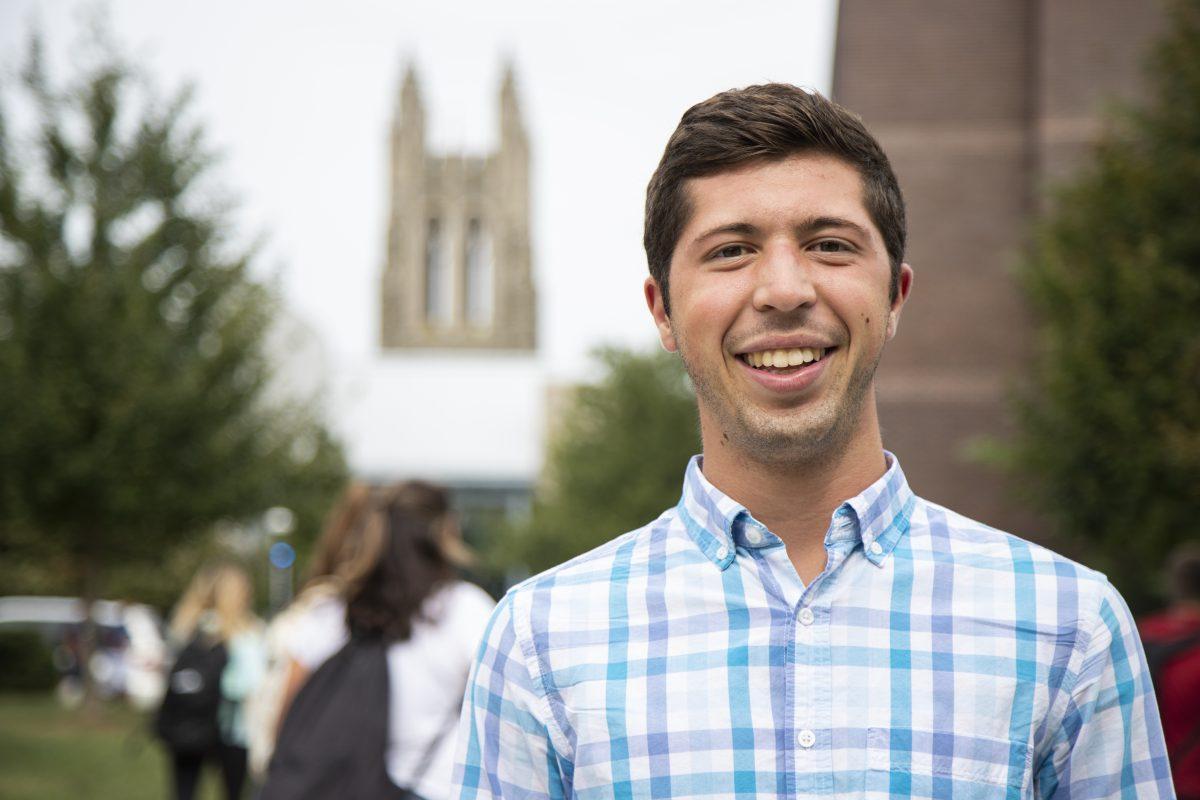Adam Mullin ’20, president of the University Student Senate, is from Omaha, Neb. Mullin, a history and theology major, also currently serves as an RA, a Hawk Host and an Orientation Leader on campus. He spent the summer in Nebraska working as a camp counselor.
The Hawk spoke with Mullin about his plans for Student Senate.
When did you first consider yourself to be a leader?
Freshman year of high school, playing football. Recognizing that I didn’t necessarily have the athletic skills and capabilities others had, I was going to have to make up for that and push harder in different ways. My coach would always joke, “It’s like having a coach on the field!” When a bunch of guys were coming off the field after something had gone really well, it was me purely running up, high five-ing, congratulating and jumping up in the air with people. I can simply lead by my example, and that gave me a lot more confidence.
What interested you most about the St. Joe’s community?
A pull for me was the Jesuit Catholic identity. In high school, I started appreciating the way in which I felt like I could develop myself holistically and then be pushed to critically think about things that have real world applications. I’ve seen it confirmed in college; asking those bigger questions of “what importance does this have?” or “where are there systemic issues that there may be solutions to?” College in a lot of places, but especially here, pushes you to expand your worldview beyond your own lived experiences. For me, that was a hallmark of the education here.
What does the word “inclusion” mean to you?
Inclusion really boils down to ensuring that everyone feels comfortable being their fullest self. Not forcing someone to express themselves, but creating space so that people feel they can if they should choose to. A key tenet of that inclusion is making sure that we are forging connections between individuals, not just who we connect with.
How do you plan on fostering inclusion on our growingly diverse campus through your work with the Student Senate?
It was productive when we had the forum last fall after the bias incident on campus. That was a good spot for dialogue, but you were [only] getting the people who cared really passionately about it. You weren’t engaging other people. That’s where we have work to do. Fostering dialogue and working with events that are going to challenge people to ask questions. It’s not the goal of any of our initiatives or efforts to change the way people see the world. If they do, that’s great, but can we think critically about the way we engage others, label others and see others in a certain light?
What is one senate initiative that you are excited to work on this year?
One thing that Gabby Stevenson ’21 started last semester, that now Taylor Stokes ’22, myself, and others are picking up, is this Be Civil campaign. There’s power to just saying “be civil” because that’s a lot of what we need to do. If I’m going to disagree with the person across from me at the table, that’s fine, if we can do it in a civil way that forces us to grapple with the issues at hand and focus on what we’re saying rather than who we are. I think that goes a long way. Stokes is currently crafting a pledge that we hope students across the board will sign onto and be conscientious of, essentially saying we are going to acknowledge and respect differences between individuals.
What can any student do to make sure others feel included on campus?
If you don’t have anything good to say, don’t say it. In a constructive way, say those things that may disagree with opinions. There simply is no place for hate or malicious activity towards an individual. You can hate or disagree with the things that people do, but don’t direct things towards people. Be as uplifting and supportive as you can of people whilst pushing them to be better and to do more as an individual.














































